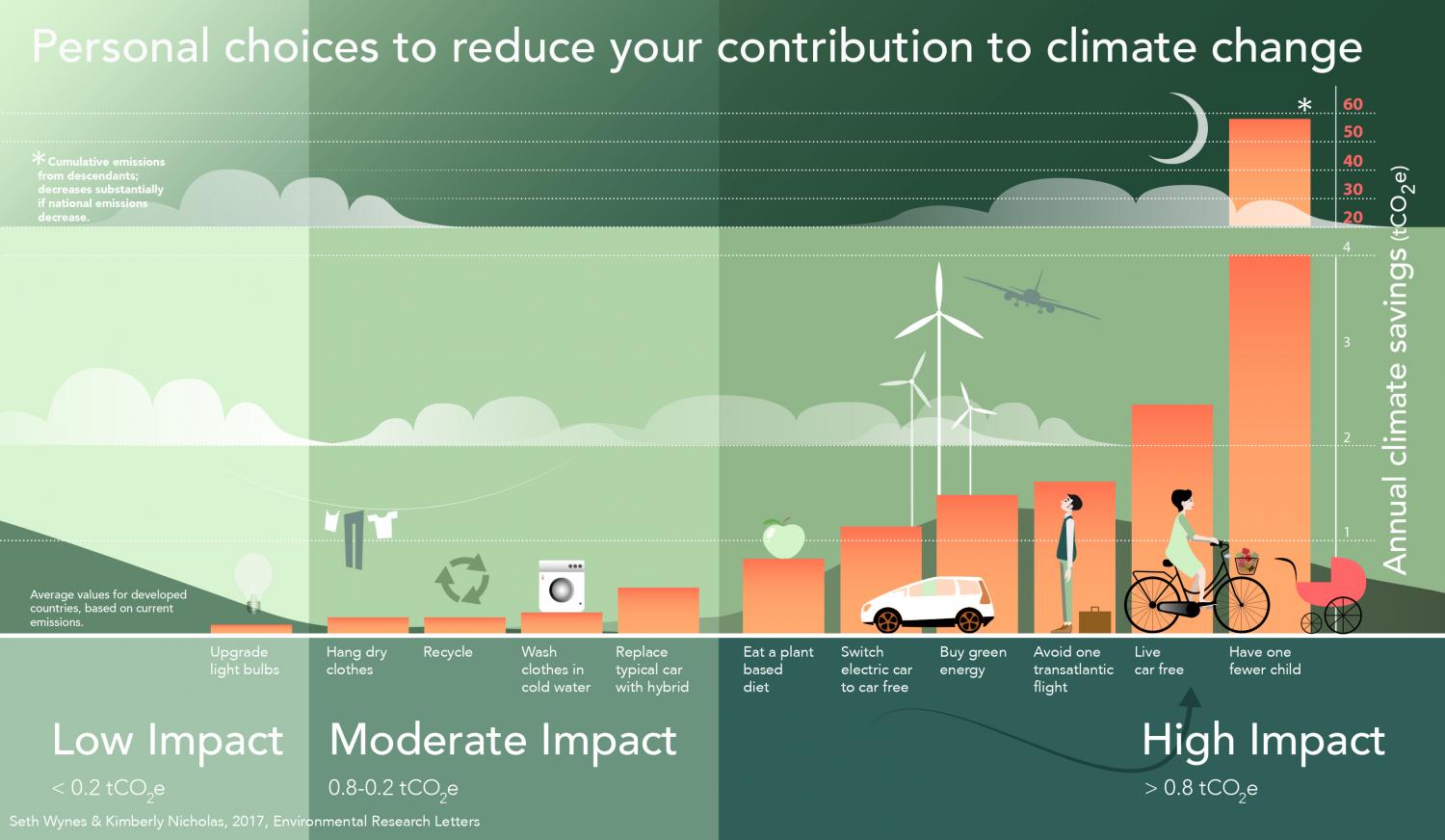I came across a super cool infographic and article (based on this research paper) ranking different actions by environmental impact. You know those things that people always say to do – recycling, washing your clothes in cold water, changing lightbulbs? They don’t do that much 🙁 Too bad, since those are some of the easiest and least controversial changes to make.

The article says that the most effective things you can do (if you live in a developed country) are:
- Don’t have kids (The study attributes 1/2 of your children’s emissions, 1/4 of your grandchildrens’ emissions, etc. to you)
- Don’t use a car
- Don’t fly
- Buy green energy (This is easy to do!!!)
- Don’t eat animal products (The study actually specifies no meat, with no mention of other animal products, although dairy in particular has a large carbon footprint.)
Less effective actions include:
- Recycling
- Doing laundry with cold water
- Hanging laundry to dry
There’s a table with a bunch more actions listed. Improving home insulation and producing no food waste are both moderately effective; composting is listed as not very effective, but no carbon footprint reduction estimate is given so maybe they just couldn’t find any data on it.
The less effective actions are obviously more attractive; after all, they don’t require major lifestyle changes. This may be why “textbook and government writers intentionally [promote] low-impact actions,” following a ‘foot-in-the-door’ approach, “a type of positive spillover where encouraging small actions is hoped to lead individuals to take more substantial behaviours later”. It’s unclear if this actually happens, though… Man, behavior modification is hard.

From a healthcare perspective… man, behavior modification is hard!
Wait — what’s number 7 that’s so cool?